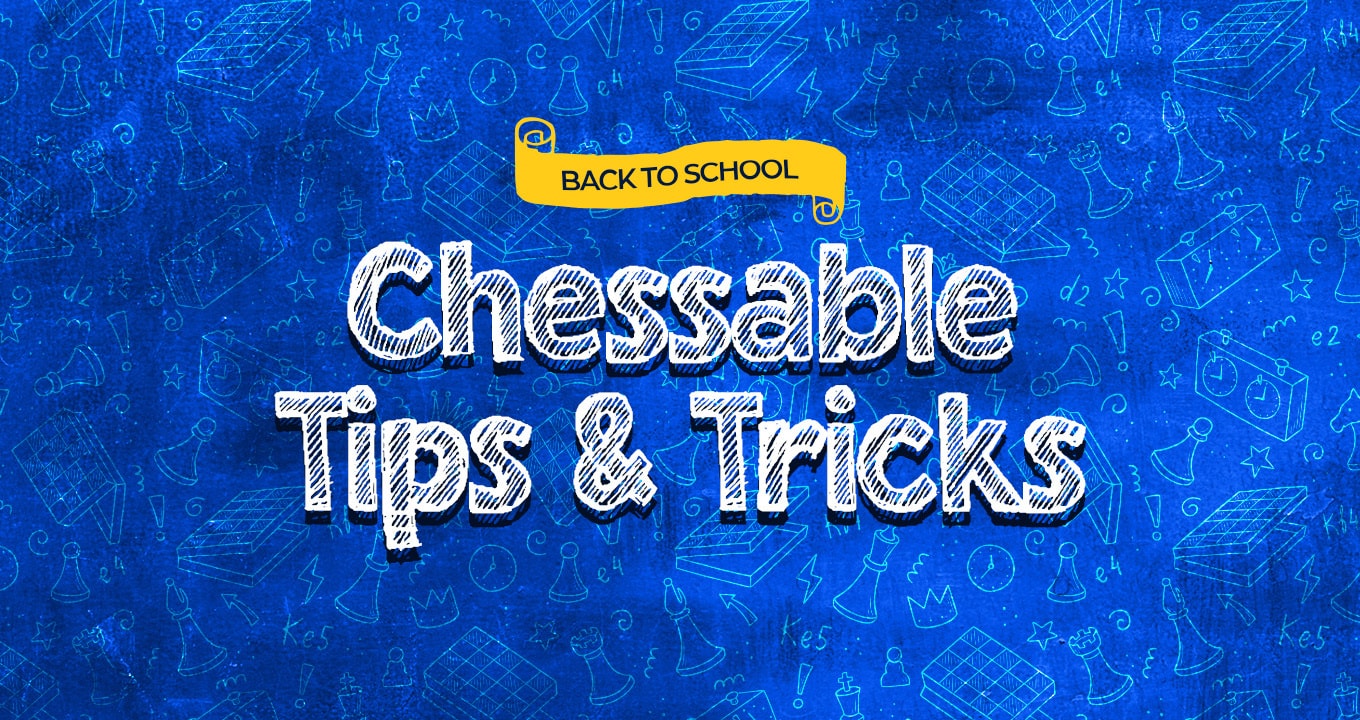Chessable developer William Hoggarth, a 1600 elo player originally from the UK but who now lives in Siberia, is on the hunt for new chess tips for beginners.
In June, William came in from the cold (quite literally) to play to his first over the board tournament for seven years and found the mental side tougher than he expected. Here’s how he got on and what he learned:
The inner battle of chess
Earlier this year I played in the Bristol Chess Congress which consisted of five OTB games over a long weekend. It was my first long time control tournament in seven years.
Afterward, I was left deeply impressed by my experience, in particular on the psychological aspects of the royal game and determined to boil down some of the good chess tips for beginners both for myself and to pass on to others. Afterwards I recorded some of my musings and observations and shared them. I’ve recently visited my notes and pulled together this article which I hope you will find both interesting and enlightening.
Outnumbered from the beginning
To play a good game of chess, you are not just pitted against your opponent, but you must also overcome yourself – bad habits, laziness, hastiness, emotions, distractions etc. This is something that becomes a lot more apparent in long play games when you have more time to become aware of these things and to try to deal with them.
It’s also perhaps an underrated and under-discussed aspect of chess skill and improvement. Maybe because it involves our own imperfections, rather than seemingly external knowledge or skill that just needs to be “learned”. As one person wryly pointed out to me, the good news is that your opponent is also fighting against two people!
A warm-up is indispensable
One dangerous point in the game is the moment you come out of theory, you’ve been playing quickly, and everything seems familiar. It’s all too easy to make a rash or natural but flawed move.
When playing in Bristol I got into the habit of starting to calculate lines and examine the position straightaway, so as soon as my opponent deviated or my book knowledge ended, I had already begun thinking, warmed to the position, and knew what was going on.
Intuitively lazy
Intuition and the subconscious play a very important part in our thought processes. It’s what allows us to see tactics, ideas, plans, threats etc. Very little of that comes from our conscious reasoning. Indeed, they have been some recent chess books on this very subject, arguing that good moves are just good moves and the numerous principles and guidelines discussed at length in publications only really give us a language to discuss ideas rather than being the source from which they spring. Nonetheless, many appealing moves and ideas that come to mind straight away are not always such a dead cert as we think. They need to be vetted with careful calculation to ensure there are no overlooked defensive resources, counter-play or even blunders. It’s becoming ever more apparent to me that carefulness and thoroughness are key components to key play, but often one’s own instincts often rail against it especially when that blunder looks “obviously winning” or when tiredness begins to set in. Discipline is required for consistently good play.
The lure of fatalism
Building on the last point, the temptation to be lazy and take shortcuts is even stronger when you are under pressure. It’s too easy to think, “What’s the point? I’m going to lose anyway”. In round 4 of the Bristol Congress, I made a mistake in the opening which meant I was immediately under pressure, and probably losing against a strong player. I had to constantly fight the temptation to play quickly as all seemed lost. After a few moves, the situation seemed to get a little better, but there was that nagging feeling that I would dig myself mostly out of the hole, only to find that there would be that persistent and ultimately winning edge for my opponent at the end. I really had to force myself to keep analysing thoroughly and not to give into the idea that all was lost. By the time we got to a rook and pawn endgame, I even had winning chances, perhaps if I was able to restore my confidence, I may have made something of them. Still, I got a draw where a less disciplined version of myself may well have gone down in flames.
The reverse situation can be true of course. Just because you’re ahead by a big margin, it doesn’t mean you can’t throw it all away. In a recent 30-minute game I was an exchange and four pawns up and looking good, but I overlooked a tactic and was almost losing if it weren’t for a cunning counter sacrifice. Afterward, my coach told me to never relax until “the clock is stopped, and scorecards are signed by both the players”.
Daydreaming
I found it was easy to fritter time away pondering which general principles take priority in a position instead of calculating. I caught myself in this sort of chess daydream more than once and made myself get back to calculating out the various possibilities that I was considering. Of course, these considerations can be helpful, but only really as a precursor to looking at the concrete realities of the position. Also, it’s better to do most of this thinking whilst it’s your opponent’s turn when you can’t be 100% sure what position you be presented with on your turn.
Know how to end the conversation
Sometimes ending a conversation can be awkward if you need to leave but your interlocutor shows no signs of stopping and doesn’t pick up on your subtle hints that things should be brought to a close. Likewise, when you feel you have thought long enough and that you need to make a decision, it can be tricky bringing that internal dialog to a successful conclusion. It can’t drag on, but equally an abrupt ending can have disastrous consequences. It’s too easy to go with what you were considering last rather than to properly compare the various options. This is especially bad when you spend a long time on one more or moves, decide that you don’t like them and then quickly play another move that you’ve not properly investigated. You may get lucky but there is a high chance of regretting your hasty choice. Simply being aware of this common pitfall and ensuring you find most, or all, of your candidate moves at the start of the process can help alleviate the problem.
All things in moderation
This is one of those beginner chess tips I have heard. But it was mentioned to me in Bristol that it is possible to calculate too much, getting lost in variations and become exhausted from the effort. My personal tendency is to calculate too little, but certainly one needs to be careful and thorough whilst at the same time being aware of the amount of time and energy being spent.
Takeaway chess tips for beginners
We’re all on the lookout for killer chess tips for beginners, but they’re not always easy to hit upon. I hope these ideas and thoughts have been useful or interesting to you, and that you’ve begun to reflect a little on this aspect of your game. This article is not meant to be a comprehensive discussion of the subject, and I’m sure others may have different experiences, ideas and remedies. While many problems are common, we all have to figure out and conquer our own weaknesses in psychology and thought processes. As ever we’d love to hear other people’s thoughts, there is some much to learn from each other and it’s great to know that we are not alone in our struggle to improve.






